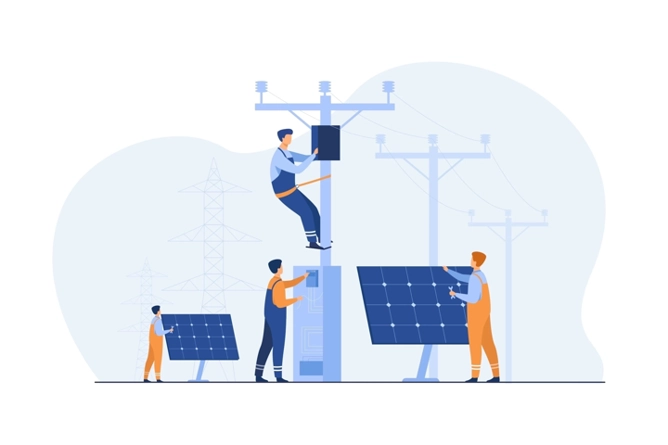
Kita in Germany – Did You Start Looking for Daycare [2026]
The word Kita is a short form of kindertagesstätte. This daycare type is a German preschool designed for children who are aged between three and six. When the children become six-year-old, they are then moved to full-time primary school. Sessions in Kita are supervised by quality teachers. In Kita, Children learn different activities like doing gymnastics, painting, handcrafting, poems and singing.
Depending on the weather children play indoors or outdoor. It is recommended for parents to cloth up your children with waterproof clothes so you child can enjoy all these activities without get wet all the time.
Why Kita is beneficial for your Child ?
Eventhough Kita is not mandatory but still 90% of the parents send their children to Kita, there are several reasons why Kita is beneficial for your child.
- Socializing: When your kid learn to play with other kids, it will develop a feeling of interaction with others and also get the taste of social life.
- Personality development: Your child learn about his/her personality that how they behave when they are in a social event. At Kita, they learn about responsibilities and therefore also develops self-confidence.
- Learning from each other: Each child brings something of it’s own. Therefore each child subconsciously learn new things from other children.
- Targeted Learning: Everything in the Kita is designed to enhance the basic development of your child. For example, the childcare workers pay special attention that your child develop their speaking skills as well as language skill. They also focuses on the their behavior learning like thinking about others, showing empathy when needed. Even visiting a zoo in kindergarten, promotes empathy and compassion.
What is Eingewöhnungsphase in Kita ?
Before going to Kita, you child spend most of the time with you either at home or at the Spielplatz (Play Area), so it is hard for some kids to get separated from their parents as they have not experienced this before. Many Kita has introduced this Eingewöhnungsphase meaning settling-in-period for your child. This period could last to 4-8 weeks depending on your child’s adaptability to the new surrounding.
How does Eingewöhungsphase (Settling-in-period) work?
It works in few phases, for example when you kid start going to kita, then the first phase will start. In the first phase, you stay with you kid as long as, your child is in Kita.
Then after few days, the phase 2 will start where you will take you kid to the kita. Once your kid start playing with other kids, you will sit in the background.
If your kid is fine with it then phase 3 will start where they will tell you to leave your child in the room with other kids and you will be in the other separate room. In case your child needs you in emergency.
In some of the Kitas, this settling in period could last for 2 weeks but some are bit strict about it and ask you to do this for 4 weeks, eventhough your kid is now settled in Kita. For working parents, it could be a problem because you need to manage your time and work in a way that you can support you kid in this settling period.
How the Day Looks Like at a Kita in Germany?
The days at Kita are longer. The opening time for Kita is around 7 in the morning and remains open till 5 or 6 in the evening. Parents do have the option to negotiate for the hours of their choice. Children at Kita receive almost 7 to 9 hours of free care.
There is an initial period at many Kitas which is called eingewöhnung. This time period allows the children to get easy into spending time at daycare.
If child is spending long hours at Kita, it is advised for parents to check if food is offered there. If not, they will need to give snacks to their child for the day. Though, some facilities do offer food.
Just like at kinderkrippe, children take part in educational plays. At Kita, students take a step above and move to advanced games. New learning regarding alphabets, numbers, and values are introduced.
Staff at Kita does not assess students regarding what they have learned. But they do supervise children all the time and track their progress.
How To Choose a Kita in Germany?
Kitas also have high demand across the country. Just like at kinderkrippe, parents get their children enrolled at the facility way before they are aged enough to attend. Due to high demand, many facilities have waiting lists as well.
At times, it is common to be listed at 50th place in a Kita. However, places do move faster in waiting. Every year, children are moving towards primary school which opens up places in Kita.
In large cities, it is easy to find bilingual services. Whereas, in small cities or rural areas, parents may find it difficult to find one.
The nearby Kitas are listed at the area’s Youth Welfare Office. Kita.de can also be accessed as it has a search function to look for local services in the area. For recommendations, neighbors, friends, and colleagues can be approached.
When parents are choosing their Kita, they should consider the following aspects:
- Location: How far is the kita to your place or work place, would it be easier for you to drop your kid every morning before going to work.
- Child-to-Teacher ratio: As it is understood, if the number of children per teacher is less then the teacher can focus more on the needs of each child.
- Language: If your child will only learn German their, or they also offer English or any other language.
- Activities: What type of activities are available in the Kita, and how crowded it is and what type of outdoor activities they have?
- Eingewöhnungsphase (Settling in Peiod): How long is their settling in period so you can plan your schedule accordingly.
- Opening hours: It might be important for working parents, either they offer services for half day or full day.
- Food: If the food is provided at the facility or do parents need to take care of the food needs of the child.
- Staff and their behaviour with international kids (Read reviews): If the number of international kids are less than locals in selected kita then you should check for reviews of international parents. If the teachers are also friendly with international kids.
- Schedule (Daily \& Holiday): How the day looks like a your selected Kita and what your kid will learn during the day. Are you fine with their schedule?
What is Right Time to Look For Kita in Germany?
It is impossible to say that what is righ time to find the Kita, because as Kitas are always full and you need to actively find the place for your child.
Since there is a waiting list most of the times, the best thing to do is to name down your child for Kita as soon as possible. Once the Kita has been confirmed, the facility can be toured. Then parents can register their details and sign contract so that their place is confirmed.
ID, proof of address and child’s birth certificate needs to be provided for verification.
How much is Child-to-Teacher ratio in Kitas?
The Child-to-educator ratio is kept low. This practice is to ensure that all the children get complete attention and necessary care.
How to Enroll your Kid to Kita?
Enrolling process is different for private and public Kitas. For instance, if you are going for the public Kita then you need to go to the Jugendamt. They are responsible for allocating your child to the public Kita. We recommend shortlisting some of the Kitas yourself, where you want to send your child, so you can mention them to the Jugendamt. If there are no free spaces in your desired Kita then Jugendamt will assign a Kita to you. Usually, they assign a Kita which is not more than 5 km from your home or not more than 30 minutes away from your place via Public transport.
On the other hand, if you are going for the private Kita then you just need to go there and enroll your child directly. You don’t need any permission from Jugendamt. For enrollment, you might need the birth certificate of your child.
Keep in mind that many private and public Kitas have a waiting list, it is advisable that you put your child’s name on all of your shortlisted Kitas, this way, the chances of getting a place at the Kitas will increase.
How Much Kita Costs in Germany?
Just like Kinderkrippe, the cost of Kitas also varies. In Germany, parents can apply for a Kita voucher which is called Kita Gutschein. This option is available in some states only. This voucher means parents will get money off. The savings depends on one’s earnings. Parents with low incomes will definitely get more savings.
In order to apply for this voucher, parents have to fill out a form. The Youth Welfare Office can further provide information on this.
ID, proof of address, and child’s birth certificate along with proof of consent from both parents (if applicable) must be provided.
There can be extra costs as well for food. At times, the extra cost is paid for trips that children attend.
In case both parents are working full-time, their children can get more free hours at Kita.
Is Kita Subsidied in my State in Germany ?
As mentioned before, that in some states, Kita is subsidised. For Example, Child care is free
- In Berlin and Hamburg
- For all the children over 2 years in Rhineland-Palatinate
- For all the children over 3 years in Hesse and Lower Saxony
- For sibling of child already attending in North Rhein Westphalia or after first year of attendance.
- For all children for a year before their mandatory schooling starts in Brandenburg and Thuringia
If you doesn’t live in any of the states mentioned then the Kita is not subsidized and you need to pay for the Kita.
Conclusion
If you can, then it is advisable for international parents to send their child into a Kita in Germany, although getting a place is hard but it is worth it. You child will able to master the language at a very early age so by the time you child goes to the mandatory school. He or She would already have enough language and social skills that he will fit right in.

Jibran Shahid
Hi, I am Jibran, your fellow expat living in Germany since 2014. With over 10 years of personal and professional experience navigating life as a foreigner, I am dedicated to providing well-researched and practical guides to help you settle and thrive in Germany. Whether you are looking for advice on bureaucracy, accommodation, jobs, or cultural integration, I have got you covered with tips and insights tailored specifically for expats. Join me on my journey as I share valuable information to make your life in Germany easier and more enjoyable.


![Best Apps to Learn German [Free + Paid]](https://liveingermany.de/images/best-app-to-learn-german/best-top-free-and-paid-learn-german-app-with-pros-and-cons.svg.webp-668w.webp)


